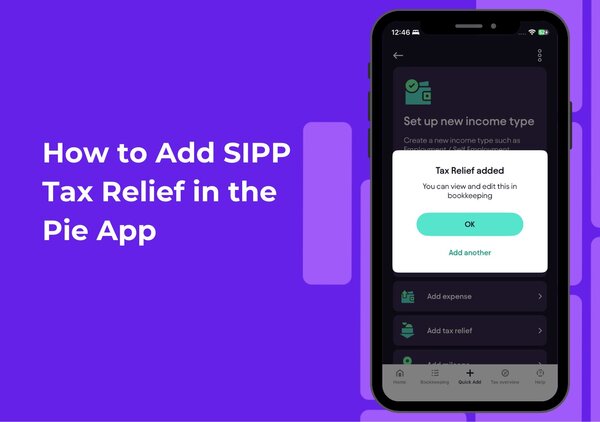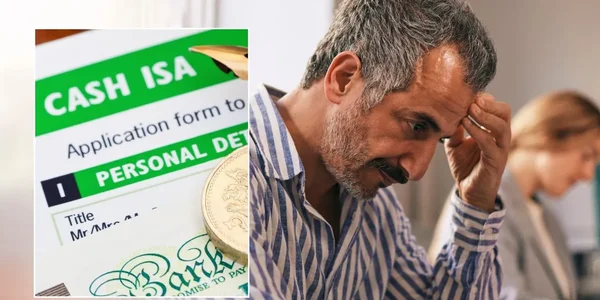Made a mess of your Self Assessment? You're definitely not alone in this struggle. Thousands of UK taxpayers face similar tax return problems every single year.
Missing deadlines can trigger automatic penalties from HMRC. Simple mistakes often snowball into much bigger issues that cause stress and financial headaches.
The good news is that most tax return fails are completely fixable with the right approach. Additionally, there are proven strategies to prevent these problems from happening again.
Let's explore the most common tax return mistakes, practical solutions to fix them, and simple steps to keep your Self Assessment on track next year.
What Does "Tax Return Fail" Actually Mean?
A tax return fail happens when something goes seriously wrong with your Self Assessment submission. This could mean missing the crucial 31 January deadline, which is the official deadline for submitting your tax return and paying any tax owed, or submitting incomplete information to HMRC.
Perhaps you forgot to declare income from multiple sources like rental properties or freelance work. Calculation errors are another common problem that can land you in hot water. Submitting the correct form whether online or paper is essential to avoid a tax return fail.
Poor record-keeping throughout the tax year often leads to major issues when filing time arrives. Some people don’t even realise they need to register for Self Assessment in the first place.
Furthermore, technical problems with HMRC’s online system can sometimes cause submission failures. However, ignorance of the rules isn’t considered a valid excuse by the tax authorities.

Why Do So Many People Struggle With Their Tax Returns?
The rules around different types of income can be genuinely confusing for ordinary taxpayers. HMRC’s online portal uses technical language that puts people off and makes simple tasks feel overwhelming.
Most folks keep terrible records throughout the year, then scramble to find receipts and invoices. They panic and leave everything until the very last minute, which almost guarantees mistakes.
Many don’t understand which expenses they can actually claim against their income. There’s also a persistent myth that employed people with PAYE never need to file returns. For example, a person might assume that because all their tax is deducted at source, they are never required to submit a tax return even if they have additional untaxed income or other circumstances that require it.
Additionally, the tax system assumes everyone understands complex concepts like capital gains and dividend income. However, these topics aren’t taught in schools, leaving many adults completely unprepared.
What Happens When Your Tax Return Goes Wrong?
HMRC hits you with an automatic £100 penalty for late submission, regardless of your circumstances. This is known as a late filing penalty, and late filing penalties can increase over time if you don’t take immediate action to resolve the situation.
You’ll also face interest charges on any unpaid tax bills, as HMRC will charge interest on unpaid tax from the date the payment is overdue. Additional charges may be applied if the tax is not paid promptly. HMRC might launch investigations and compliance checks that scrutinise your financial affairs in detail.
Serious cases involving deliberate tax evasion can even lead to criminal charges and court proceedings. If tax remains unpaid, HMRC can take enforcement action to recover what you owe, and you may be charged further penalties. Unpaid tax debts will damage your credit rating, making it harder to get mortgages or loans.
Furthermore, the stress of dealing with HMRC correspondence can affect your mental health and family relationships. Dealing with finance-related penalties and charges can be overwhelming, but taking action quickly can help limit what is ultimately paid. However, most people find the anticipation is worse than actually sorting out the problem.

How Can You Fix a Failed Tax Return?
Submit your return as soon as possible to limit penalties and show HMRC you’re taking responsibility. Use HMRC’s online portal to make any needed corrections, ensuring you make correct corrections using the official HMRC process, as this creates an automatic audit trail. Learn more about how long HMRC takes to payout refunds.
Call HMRC directly if you’re struggling and need help understanding what went wrong. Write down the details of your call, including the date, time, and the name of the person you spoke to. Consider hiring a qualified accountant or tax adviser who can navigate the system on your behalf. If HMRC does not accept your appeal, you can escalate the matter to a tribunal, such as the First Tier Tribunal, especially if you have special circumstances.
Last year, I helped a friend who’d ignored HMRC letters for months out of sheer panic. Once we actually opened the correspondence and called them, the whole thing was sorted in a single afternoon. Appeals must usually be made within 12 months of the penalty notice being issued.
What Are the Most Common Tax Return Mistakes?
Forgetting rental income from property investments tops the list of common errors taxpayers make. Cash payments and side income from platforms like Uber or Airbnb often slip through the cracks.
People wrongly claim personal expenses as business costs, which can trigger investigations and hefty penalties. Pension contribution calculations trip up many taxpayers, especially those with multiple pension schemes.
Dividend income from shareholdings gets missed regularly, particularly from small company investments or ISAs. Capital gains calculations on property sales and share disposals cause major headaches for ordinary taxpayers.
How Can You Prevent Tax Return Problems Next Year?
Keep detailed records throughout the entire tax year using a simple filing system or smartphone app. Set calendar reminders for all the key deadlines, including registration dates and payment due dates.
Register for Self Assessment early if you think you might need it, rather than waiting. Use accounting software to track income and expenses properly, as this reduces errors significantly.
When using accounting software or tax apps, make sure you are completing any required security checks, that your internet connection is secure, and that you are interacting with the legitimate HMRC portal as a human user to protect your information and ensure safe access.
Get professional help for complex tax situations involving multiple income sources or business activities. File your return weeks before the deadline, not days, to avoid last-minute technical problems.

Don't Let Tax Problems Ruin Your Peace of Mind
Most tax return mistakes can be sorted with quick action and the right approach. HMRC offers support and payment options for people in genuine difficulty, despite their fearsome reputation.
Professional help is available when you need it most, and the cost is often less than penalties. Taking control of your tax affairs will give you confidence and peace of mind. Staying on top of your tax return also helps you manage your personal finance more effectively, ensuring you meet your financial obligations and avoid unnecessary penalties.
Pie is the UK’s first personal tax app, specifically designed to help working people overcome their tax burdens. It’s the only self assessment solution offering integrated bookkeeping, real-time tax figures, simplified processing, and expert advice when you need it most.
Ready to take control of your taxes and avoid future failures? Visit Pie.tax today and never face a tax return fail again.











